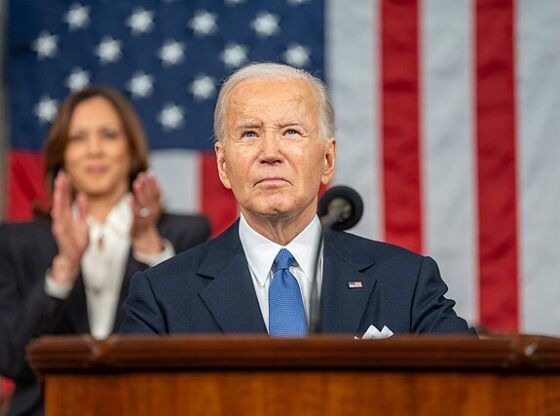The rapidly approaching 2022 midterms season is proving to be a consequential, if not contentious, election for Colorado voters. Voters are faced with crowded candidate races for Governor, Secretary of State, Attorney General, Treasurer, the U.S. Senate and the U.S. House.
Colorado voters have the opportunity to vote either by mail or in-person. Ballots were mailed to voters across the state on Oct. 17, and county drop boxes are open Oct. 24 through Nov. 8. In-person voting at county Vote Centers opened on Oct. 24 and will remain open through Election Day. On Election Day, all ballots must be turned in by 7pm local time.
The last day to register to vote for the mail-in option is Oct. 31, but you can register to vote in-person until 7pm on Election Day. If you are not sure of your voting registration status, check here. The Colorado Ballot Book can be found on the Secretary of State website; booklets were also mailed to registered voter addresses.
Governor: Incumbent Jared Polis (Dem) vs. Heidi Ganahl (GOP)
First entering office in 2018, Democratic incumbent Jared Polis has announced he will continue to build upon his first-term legislative successes by making Colorado more sustainable, affordable and safe. While Governor, Polis prioritized criminal justice reform by reducing penalties for possession of smaller amounts of drugs, such as fentanyl, and eliminating cash bail for minor offenses. State lawmakers contested this decision, reinstating felony charges for possession of one to four grams of fentanyl. For healthcare issues, Polis signed the Reproductive Health Equity Act in early 2022, codifying existing abortion protections into state law. Similarly, he issued an executive order to legally protect those who travel to Colorado for an abortion procedure.
The Republican challenger, Heidi Ganahl, portrays herself as ‘a mom on a mission’ with a policy focus on the economy, increasing fossil fuel production, addressing rising violent crime rates, limiting income taxes, ‘fighting woke values in education’ and regulating reproductive rights. Ganahl has been outspoken in her support for restricting education on transgender issues, appearing at a PAC fundraising event to keep transgender women out of sports.
For her policy proposals, Ganahl has outlined a $10 billion transportation plan while eliminating Colorado personal income tax and halving the state gas tax which would reduce state revenue by $11 billion annually. To compensate, Ganahl has stated she will cut the state workforce, shrink government funding by 10 percent annually, support private-public partnership development and find $1 billion in fraudulent spending.
Secretary of State: Incumbent Jena Griswold (Dem) vs. Pam Anderson (GOP)
First elected in 2018, Jena Griswold is the democrat incumbent for this position. Her primary priority is to increase voter accessibility by expanding in-person vote centers and drop boxes at public universities and on tribal lands. Griswold supported the Vote Without Fear Act to prevent the open carry of firearms 100 feet from polling stations.
As the GOP challenger, Pam Anderson is a former Jefferson County Clerk. Central to her campaign is combatting electoral misinformation and protecting access to fair and accurate elections. Similar to Griswold, Anderson supports universal mail-in ballots, early voting and automatic voter registration. She has concurrently supported two Democratic legislation efforts to protect voting machines from insider threats by utilizing 24-hour video surveillance of voting machines, and has also supported the Vote Without Fear Act.
Attorney General: Incumbent Phil Weisner (Dem) vs. John Kellner (GOP)
The incumbent Phil Weisner (Dem) has served in this position since 2018. Focusing his agenda on consumer protection, Weisner successfully won $200 million in settlements for Coloradans against major consumer corporations and a further $500 million against pharmaceutical companies for their role in the opioid epidemic. He has concurrently advocated for greater emotional intelligence training for state law enforcement and is an outspoken supporter for greater air and water quality protections. For his reelection campaign, Weisner has stated abortion access is his primary focal point, vowing to defend reproductive rights.
The Republican Challenger, John Kellner, is the current district attorney for Arapahoe, Douglas, Elbert and Lincoln counties. His agenda is focused on increased crime rates and use of grand jury capacities to prosecute drug cartels. Kellner is in opposition to legislation which would liberalize state drug possession limits. He has also vocalized his support for the Supreme Court decision on abortion, but has stated he will defend state laws regardless of political ideology.
Treasurer: Incumbent Dave Young (Dem) vs. Lang Sias (GOP)
The current State Treasurer, Incumbent Dave Young (Dem), has been in office since 2018. Young managed the CLIMBER small business loan program which distributed $250 million post-pandemic. His reelection priorities are to continue this program, pilot the Colorado SecureSavings retirement Program, and to return $1 billion in unclaimed assets to Coloradoans.
Challenger Lang Sias (GOP) is a former fighter pilot and served in the Colorado Legislature from 2015-19. His first priority is to combat inflation, and while he has critiqued the CLIMBER and SecureSavings programs, he has stated he would not end such policies. While fiscally conservative, his approach to handling the State Treasury is similar to Young.
U.S. Senate Race: Incumbent Michael Bennet (Dem) vs. Joe O’Dea (GOP)
Incumbent Michael Bennet (Dem) is seeking a third term as Colorado Senator. Primarily focused on economic and children’s poverty issues, Bennet has been an active proponent of the Inflation Reduction Act, CHIPS Act, bipartisan gun safety bill, PACT Act and Farm Bills. His legislative brainchild, the Child Tax Credit, was successfully signed into law but has since expired. Bennet announced he will continue to advocate for such issues with his primary focus on lobbying President Biden to protect hundreds of thousands of acres of federal land in Western Colorado. He is also a vocal proponent of a federal law legalizing abortion access.
Challenger Joe O’Dea (GOP) frames himself as a political outsider who will work to make Congress serve everyday Americans. As a moderate, O’Dea supports naturalization for Dreamers, federal codification of same-sex marriage, and legal abortion up to 20 weeks or later in cases of rape, incest or concerns over the mother’s health. He has voiced his support for Trump’s Supreme Court nominees and cutting federal government spending. His campaign agenda has primarily focused on inflation, high gas prices and combating drug trafficking on the Southern border. O’Dea has not commented on support for a nationwide policy guarantee for paid-time off for the purpose of pregnancy or family medical concerns.
U.S. House Races: Incumbent Diana DeGette (Dem) vs. Jennifer Qualteri (GOP)
Current representative Diana DeGette (Dem) is the longest-serving member of the Colorado delegation, representing the district since 1997. Primarily focused on health and environmental issues, DeGette sits on the House Natural Resources Committee and Energy and Commerce Committee. On these committees, she is chair of the Oversight and Investigations Subcommittee and co-chair of the Congressional Pro-Choice Caucus.
During her time in office, seven of her bills have passed into law, including the ‘Every Kid Outdoors’ program, 21st Century Cures Act, and several others focused on funding for the national organ transplant network and regulating over-the-counter prescriptions. She has been an advocate of using Inflation Reduction Act money to address the Western drought.
Challenger Jennifer Qualteri (GOP) is a longtime Denver Republican Party volunteer and worked for the Colorado Department of Human Services as an accountant for 18 years. In her campaign, Qualteri has vocalized her opposition to legal abortion and criticized electoral security systems. She also announced her main priority is to abolish the Department of Education, replacing it with state oversight for funding and curriculum development.











